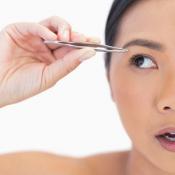 Twisted lips, contorted mouth; you know the look of someone who is biting the inside of their cheeks when they are stressed. Why do people do that? Most of us understand it as a bad habit similar to nail biting because on the surface, it would seem like a benign repetitive behavior. However, under further consideration, the behavior may be a byproduct of an obsessive and compulsive reaction to stress and anxiety.
Twisted lips, contorted mouth; you know the look of someone who is biting the inside of their cheeks when they are stressed. Why do people do that? Most of us understand it as a bad habit similar to nail biting because on the surface, it would seem like a benign repetitive behavior. However, under further consideration, the behavior may be a byproduct of an obsessive and compulsive reaction to stress and anxiety.
The medical term for the behavior is chronic cheek bite keratosis, which is a body-focused repetitive behavior (BFRB) comparable to hair pulling, nail biting, and frequent blinking. It is categorized in the Diagnostic and Statistical Manual of Mental Disorders (DSM-5) under obsessive-compulsive and related disorders, and is complementary with anxiety-related types of problems. Body-focused repetitive behaviors, such as cheek biting, most often begin in late childhood and can last throughout adulthood.
Since we often cannot escape the stress of daily life and the resultant anxiety associated with it, behaviors such as this manifest as a subconscious solution to ease emotional overload. While not an ideal choice, it does serve a purpose to those who use it as a coping method. Other times, it is common for boredom and inactivity to trigger the behavior. Cheek biting is self-injurious yet compulsive in nature since it feels almost normal and necessary in the mind of the biter. The compulsive nature is what makes it difficult to stop.
Since this behavior usually happens mindlessly, damage to the mouth tissue can occur. It is not uncommon for the biter to bite too deep and injure the mouth. Often, cheek biters have a favorite area to bite and repetitively break the skin in the same place inside the mouth. What’s worse is that when the cheek skin has been chewed and is raw, the skin feels broken and jagged, creating an additional compulsion to smooth out the affected area by biting again. This endless cycle can create physical complications only a dentist or oral surgeon can see.
Biting the soft skin inside the cheek over and over again can lead to oral trauma such as mouth sores and ulcers, but is reversible with avoidance of cheek biting, according to the Oral Cancer Foundation.
Whether it is an anxiety-related problem, an obsessive-compulsive issue, or just a bad habit, it is clear that the behavior is not ideal and potentially harmful. However, stopping the biting is a challenge because the biter is not immediately aware of when it is happening and why it is being used as an answer to stress and anxiety. The first line of defense is to lower the affected person’s stress level and provide alternative and healthy anxiety solutions. Stress and anxiety can be lowered multiple ways, most effectively by exercising regularly and eating healthy. After that, removing stressful situations and triggers should be evaluated. Additionally, treatment including mindfulness training and meditation is almost always useful. Learning to be aware and present in each moment allows the person to be in control of behaviors. While easier said than done, mindfulness and meditation are empirically proven to improve mental health.
Often, body-focused repetitive behaviors such as cheek biting respond well to talk therapy that includes techniques drawn from cognitive behavioral therapy and its subcategories dialectical behavior therapy, habit reversal therapy, and acceptance and commitment therapy. Although no one approach works for everyone, an eclectic sampling may work well. These therapies are based on the idea that obsessions and compulsions, like body-focused repetitive behaviors, help people experience stress, anxiety, and emotions without reacting negatively to them in the form of a behavior. The goal is to experience life without needing a compulsive outlet, like cheek biting, to handle what comes.

The preceding article was solely written by the author named above. Any views and opinions expressed are not necessarily shared by GoodTherapy.org. Questions or concerns about the preceding article can be directed to the author or posted as a comment below.

 'What Have I Done?' An Introduction to Trichotillomania
'What Have I Done?' An Introduction to Trichotillomania Excoriation: What Is It and Why Is It in the DSM-5?
Excoriation: What Is It and Why Is It in the DSM-5? Mysophobia: the Fear of Germs
Mysophobia: the Fear of Germs

Please fill out all required fields to submit your message.
Invalid Email Address.
Please confirm that you are human.
Leave a Comment
By commenting you acknowledge acceptance of GoodTherapy.org's Terms and Conditions of Use.